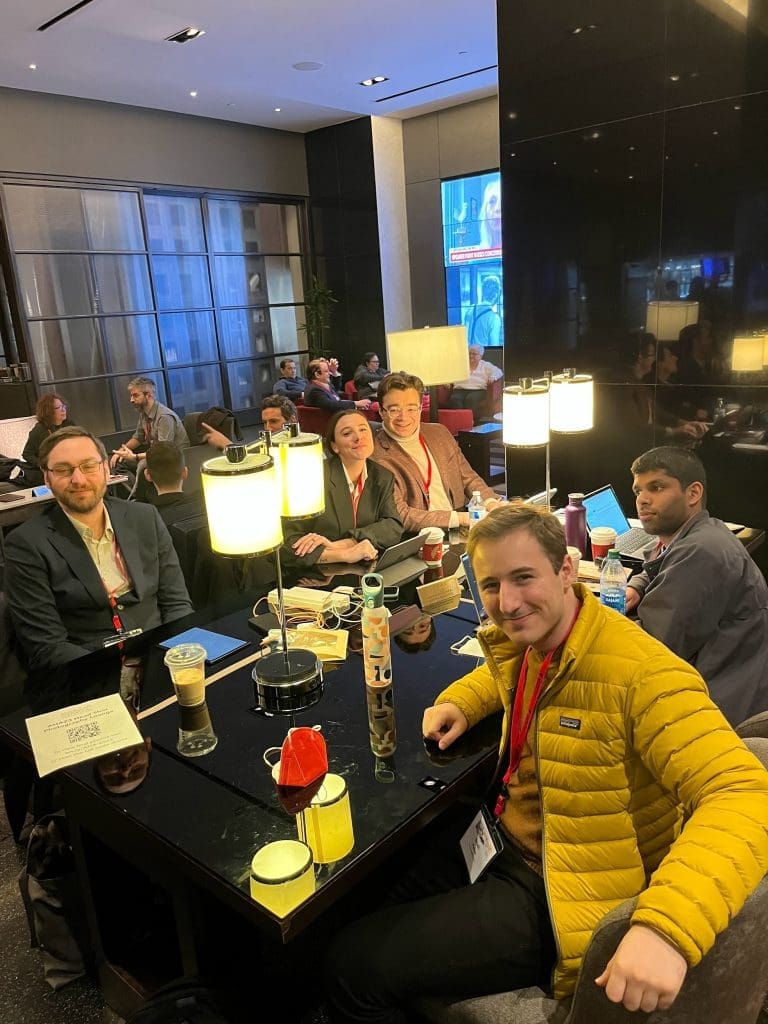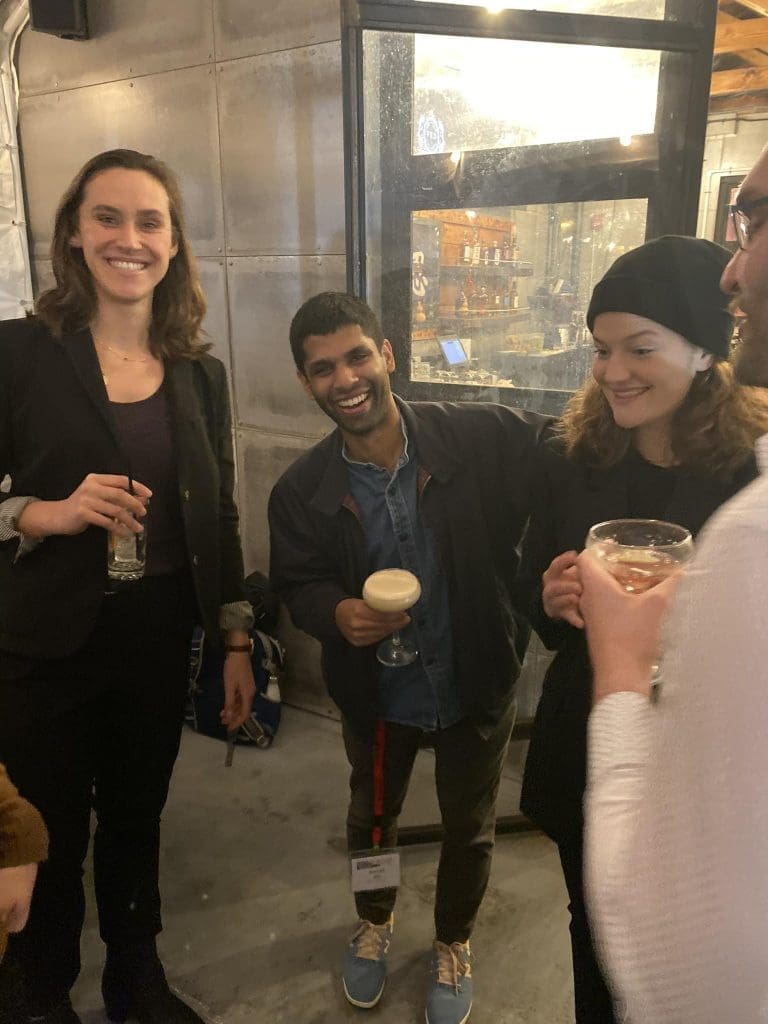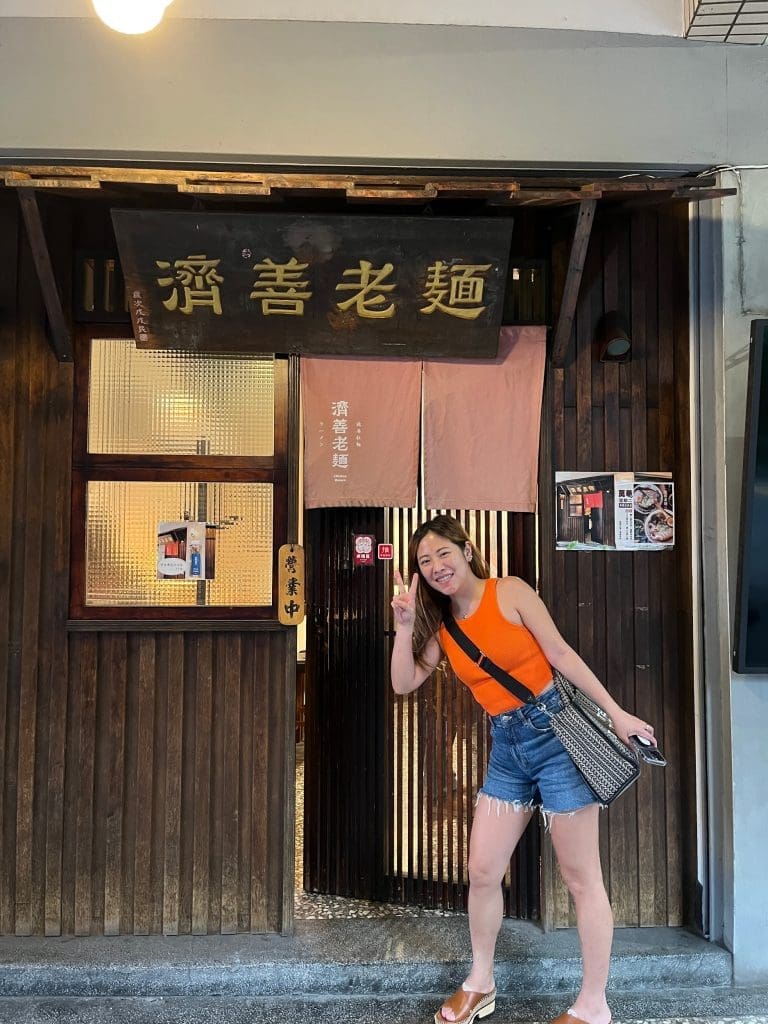
The AHA
On a chilly January morning, four graduate students from Johns Hopkins hopped on a train from Baltimore to Philadelphia. The conference app downloaded, scoured and even memorized, Laurence Bond, Elena Palazzolo, Gregory Smaldone and I were ready to take on the Conference of the Association of American Historians. But we were not alone in representing our department in the City of Brotherly love.

Jacob Bruggeman, Chloe Hawkey, Thomas Keegan, Noah Kulick, Amrish Nair, Alexander Peeples and Sheridon Ward were there to attend panels, peruse the book fair, and meet other scholars. Dr. Christina Thomas presented her paper “‘Where Did We Come From’: Black Women Consultants, Black History Workshops, and the Friends of Children of Mississippi” at a panel entitled “The South Got Somethin’ to Say: Black Women’s Experiences and Activism in Mississippi and North Carolina.”

The “Hopkins question”
At a panel on Marxist scholarship, Keegan, Nair, Bruggeman and Hawkey asked thoughtful and pointed questions from the audience that demonstrated the unique training offered by years of Monday Seminars and weekly “regional and thematic seminars” with rigorous intellectual engagement in others’ work. It comes as no surprise perhaps that a program built on the tradition of “the Seminar,” with its regimented format of pre-circulated papers and question-and-answer, would train its students in the crafting of a “good” question — one that engages with the work without attempting to undermine it, that demonstrates knowledge of the literature and the material without lecturing its interlocutor, and one that importantly is fairly short and to the point. The art of the good question implies more than a rhetorical trick — it crystallizes the kind of intellectual rigor and generosity that the Hopkins Seminar tradition seeks to foster. In their jointly-led pre-Seminar meetings, held almost every Monday in the 2022-2023 academic year, Professors Jean Hébrard and Martha Jones have spent time working together with graduate students to dissect together the weekly paper, reflect on its stakes, its arguments, its shortcomings, and articulate questions that would help generate a constructive conversation in the Seminar Room.
Graduate students and faculty gathered at a restaurant near the conference venue in Philadelphia over food and drinks and reflected on the return to a semi-normal academic life on the move, and in person.

Conferences, Research and Workshops
With the effects of the COVID-19 pandemic slowly receding, the department community gradually returned to in-person meetings and conferences over the last year. Cautiously going back to pre-pandemic levels of travel and socializing, Hopkins grads have been visible at a number of academic meetings and conferences. To name a few–in May 2023, Bruggeman, Hawkey and Palazzolo attended the Midwestern History conference in Grand Rapids Michigan and presented papers there. Bruggeman’s paper, building on his dissertation research on the history of internet communities in the US, was titled “The Rise and Fall of Cleveland’s Freenet: Reflections on the Lost History Decentralized Networks.’’Hawkey presented a paper entitled “Errand into the wilderness,” where she analyzed the University of Minnesota as the site of a second founding of the field of American studies. Palazzolo presented her research on Chicago’s Stock Yards and the development of workplace tourism in the Progressive Era, in a paper titled “‘I could not avoid visiting them’: touring the Union Stock Yards, 1880-1893.” Over the summer Olivia Barnard and Ellie Palazzolo joined other members of Keywords for Black Louisiana, a LifexCode project led by Dr. Jessica Marie Johnson, in New Orleans and Opelousas for their annual August community workshop.
Hopkins students have also been on the move for research and field work. Taylor Stephens is currently at Stanford University conducting research for his dissertation on the history of social entrepreneurship, and working as a research assistant at the Stanford Center on Philanthropy & Civil Society (PACS). Supported by the Willie Lee Rose Fellowship, Halle-McKenzie Ashby and Wesley Sampias are preparing to pursue archival work abroad, in England and Japan respectively. Julia Man-chu Wu has been enjoying her research life in Taipei, Taiwan, working on her dissertation. She attended conferences this year in Boston and Singapore to present her research on the fraught relationship between the Qing court and Banner communities in the Manchu homeland. Kevin Kind also has logged significant mileage for research and conferences; he went to Taipei in August of 2022 for a five month grant at the Center for Chinese Studies. He has also presented his work in Geneva at the 2022 International Uyghur Studies Conference, and gave a public facing lecture at National Taiwan University on the current human rights crisis in Xinjiang. In December 2022, Kind was invited to Taipei’s Academia Sinica to share research on late Qing smallpox vaccination efforts in Uyghur communities. In June 2023, he attended the “Remote Ethnography of the Xinjiang Uyghur Autonomous Region” for three days of research training in Würzburg, Germany, followed by a trip to Tokyo in July 2023, to present his research at the Japanese Society for Chinese Muslim Studies.

Afua Quarshie traveled to Ghana this summer to begin fieldwork for her dissertation, which broadly explores the histories of motherhood and mothering in the country’s post-independence period. She spent some time in the archives, but she dedicated the greater part of her time to interviewing older women as part of an oral history project that will anchor the dissertation. As Quarshie shared with me, “I grew up in Ghana, and the women that I interviewed, mostly an outgrowth of my personal network, felt like my mothers, grandmothers, and aunts.” The women at the heart of this oral history lived through monumental events in the country’s history, including independence, several coup d’états, famine, structural adjustment, and the internet age. “Listening to the stories they chose to share about their journeys into womanhood and motherhood was a privilege and honor that I don’t take for granted,” Quarshie told me. She will spend the coming years working on this project, and hopes “that the end result is a dissertation that honors these women – my mothers, grandmothers, and aunts.”
Vincenza Mazzeo spent a semester in Johannesburg, South Africa, conducting archival research for her dissertation on women’s multi-racial activism during the 1980s. While in South Africa, Vincenza visited the South African History Archive (SAHA) and Historical Papers Research Archive which are both housed at the University of Witwatersrand. Benjamin Barrett, who joined the Department this Fall, spent the past year in Marseille, France, teaching English in a lycée as a Fulbright English Teaching Assistant. During that time Barrett was able to conduct research in the Archives Départementales of the Bouches-du-Rhone on documents produced during the Federalist Revolt and its aftermath during the French Revolution. Benjamin will put this research to good use in the crafting of his First Year Paper. Arthur Lee and Nir Eydan were also in France conducting research in 2023.
Over the summer, Anna Roberts spent two weeks researching in Glasgow, at the University of Glasgow Library and at the Glasgow Museums Resource Center, looking through their collection of Scottish snuffboxes and African snuffbottles for her dissertation. She then headed to London for three weeks to complete important research at the British Library and the National Archives in Kew. Roberts hopped back over the pond in September to present at an International Society for Intellectual History conference in Edinburgh, and to spend a week at the Cumbria Archives in Carlisle, with an additional day in London analyzing snuffboxes held by the National Maritime Museum. Anna will be spending October at the Lewis Walpole library in Connecticut. Joao Gabriel has been conducting research in Guadeloupe since December of 2022. Earlier this year, Joao Gabriel received the Millstone Fellowship from the Western Society for French History, which will allow him to conduct research in a series of French cities, namely Paris, Roubaix, and Aix-en-Provence. Thanks to the summer fellowship from the Program in Latin American, Caribbean, and Latinx studies, Gabriel was able to conduct research in French Guiana in August and in Martinique in September and October.
In the coming school year, Hopkins Graduate students will continue to have opportunities to take their work on the move as well. Chloe Hawkey and Laurence Bond, for instance, successfully submitted a panel proposal for the 2024 meeting of the AHA in San Francisco, bringing together the historiography of Medieval studies and Modern American History in a move inspired by Dr Anne Lester’s course “Making Medieval History in ‘Modern’ America.” Being “on the move” is a key aspect of our work. From field work, to research, to collaborative work at conferences, History often happens outside the confines of our respective departments. In the upcoming years Hopkins students will hopefully continue to take their training on the go, from archival skills to pointed seminar questions, to publications and conferences.